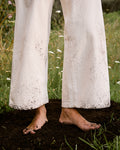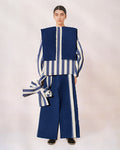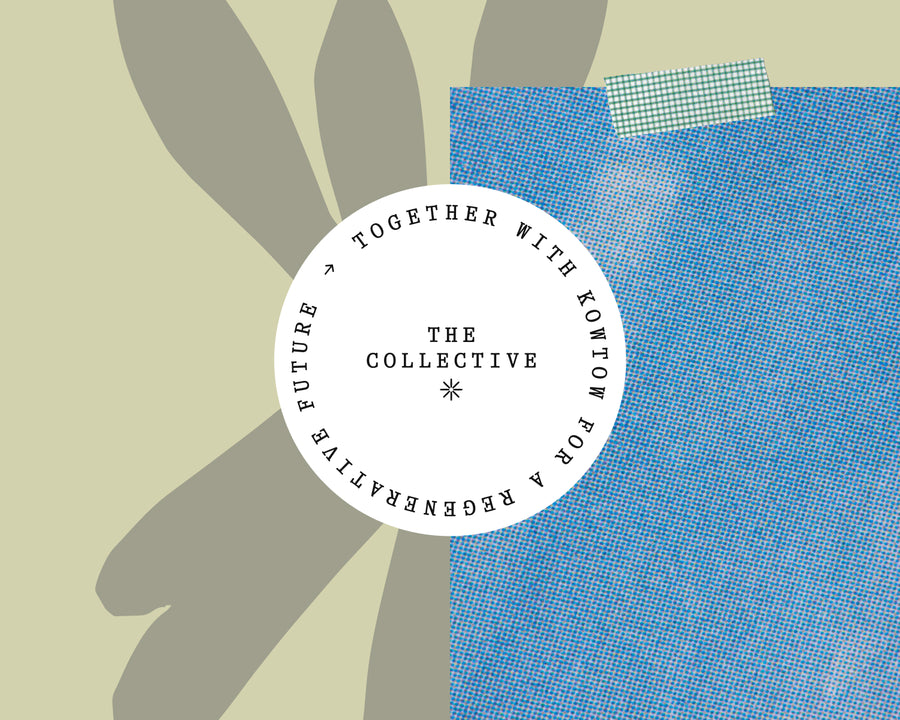At Kowtow, we strongly believe we are responsible for what we produce and that it doesn't end up as waste. We design with the entire lifecycle in mind, and are working on closing the loop to attain full circularity. We consider every detail of a garment and whether it sits within our values, we work with materials and trims that are responsibly sourced and use them mindfully. The simplicity and strong minimal identity of our clothing are our first steps toward circularity.
Every Kowtow garment comes with a promise of free repair to extend its life and is supported by a take back program. We manage the end life of our clothing responsibly to eliminate the number of garments going to landfill. Slow fashion is to spend a reasonable amount of time on an item of decent quality, our sashiko workshops aim to cure loved clothing by giving them a second life.
In a world where many things are discarded without thought, mending our clothing is a small act of rebellion. When we repair your clothing, one of the techniques we can use is the Japanese mending technique, sashiko. This hand-sewn repair is about valuing and extending the life of the garment by not only strengthening it, but taking the time to make it beautiful as well.
Last week, we hosted a sashiko workshop in our flagship store. Taught by our lovely team, these workshops are an opportunity for us to teach our customers how to give their worn clothing a new life. As part of our movement towards circularity, some handy people from our team have spent their time repairing and embellishing a collection of shirts with imperfections. Reimagined each season, the white shirt has become an essential component of the Kowtow wardrobe. These new interpretations of our white shirts encompass indigo sashiko detailing that embellish and emphasise form and function, redefining their place in our beloved wardrobes.
We are so pleased to share with you our sashiko shirt story. The shirts are on display in our Wellington and Newmarket stores and are available for purchase with proceeds going to Wellington Women's Refuge. We hope our interpretation of this beautiful Japanese technique brings you joy and inspires you to extend the life of your loved clothing.















